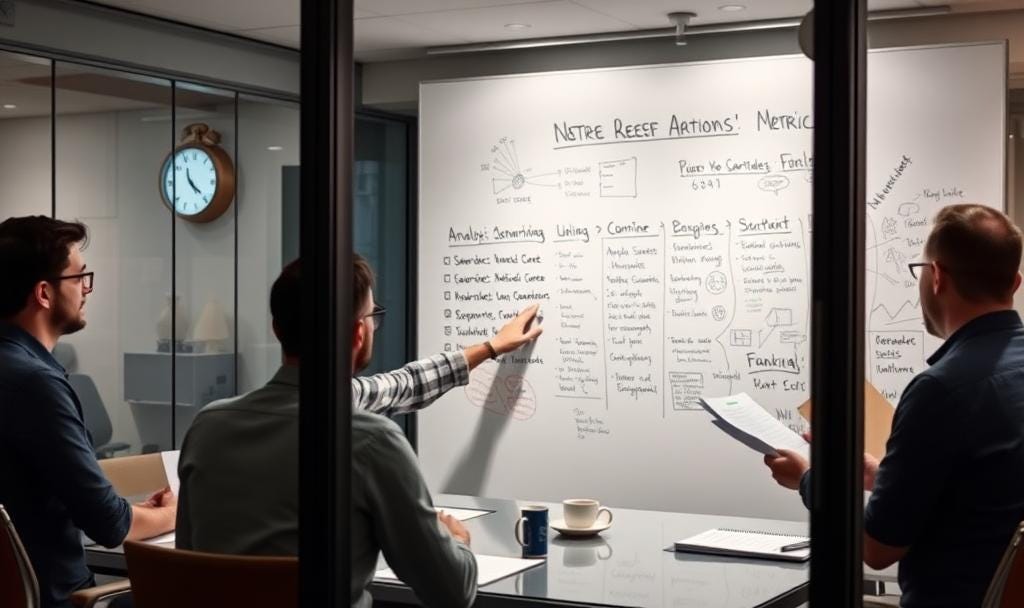Inside the VC Firm: What Really Happens When Your Deal Is “In Pipeline”
Why real venture capital takes weeks, not days—and how founders can navigate the process without killing their own round.
Over the past 6–8 months, I’ve had a front-row seat to a pattern that’s quietly killing fundraising rounds before they even begin.
It starts with a message from a founder that sounds something like this:
“Hey—we’re closing $1.5M this week. If you want in, I need a commitment by Saturday.”
It’s urgent. It’s confident. It sounds like momentum.
But here’s the uncomfortable truth:
None of those rounds actually closed.
Urgency ≠ Momentum
Founders often believe urgency will create FOMO and drive action. But inside VC firms, it creates red flags.
Why?
Because every fund hears the same pressure tactic—and guess what?
We talk.
When a founder says “we're closing this week,” we call the other funds in the round.
And the usual answer?
“Nope, we’re not committing yet. Still in diligence.”
Now everyone smells blood in the water. What was supposed to signal demand, actually signals desperation.
What Really Happens When a Deal Hits a VC Pipeline
Let me take you behind the curtain of how institutional VC actually works:
Initial Meeting
You pitch a partner or associate. If there’s interest, the deal is logged and discussed in the next team meeting.Analyst Pick-Up & First Memo
An analyst (like me) starts building your case: TAM, traction, team, vision, competition. If it holds up, we prep a short internal memo.First Investment Committee (IC)
Happens within 1–2 weeks. The goal? Decide whether the fund should enter deeper diligence. You don’t get a “yes” here—you get a “let’s look closer.”Deep Dives: Weeks 3–5
This is where real work begins: product testing, customer calls, legal checks, data room analysis, financial modeling. It’s slow because it’s serious.Final IC & Term Sheet
Only after this will the IC vote, and only then do you get a term sheet. That whole process takes 1–3 months, sometimes longer.
Meanwhile, that same team is juggling 4–5 other live deals each week.
So no, we’re not being “slow.” We’re being thorough—because that’s our job.
When Does Fast Actually Work?
There are exceptions—but they’re rare:
Best Case:
You’re OpenAI.
Sequoia or a16z already ran the diligence.
A smaller fund just needs a name-brand lead to follow with a $200K check.
Worst Case:
You’re raising from a spray-and-pray fund that throws checks in hours—and ghosts post-close.
For founders who want real support, real partners, and real conviction—speed kills.
How to Know If a VC Is Actually Interested
Forget the ghosting, follow-ups, and secondhand signals. Ask this instead:
“Has this been passed to IC yet?”
“Is there interest post-screening?”
“Are you in diligence, or still evaluating fit?”
And here’s a quick tip:
If the analyst is asking for customer metrics, retention data, cohort behavior, or product screenshots—your deal is alive.
If not? It’s either dead or stuck.
Final Thought: Your Urgency ≠ Our Process
If you're a founder raising a round, here's the harsh but helpful truth:
Don't plan your raise with a 2-week buffer.
Don't expect real VCs to skip real diligence.
Fundraising is not speed dating. It’s the beginning of a multi-year relationship.
If you want real money, real support, and real conviction—give us the time to actually understand you.
That’s how rounds get done.


